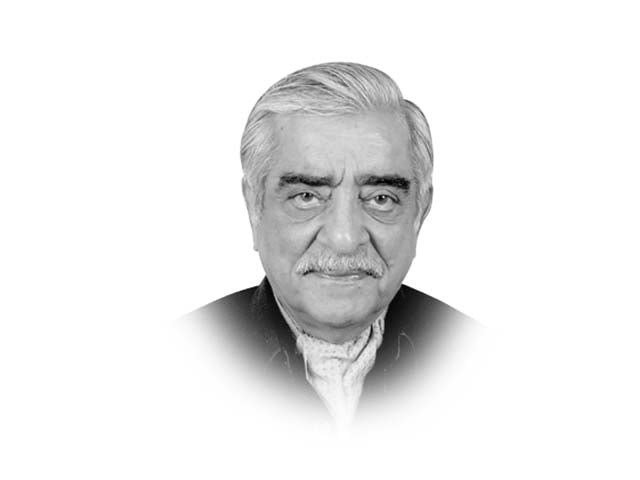The Obama speech and its consequences for Pakistan
The nature of the war will change to more aerial attacks, more drones and, above all, more Special Forces operations.

Given the political compulsions, these withdrawal figures must be seen as being cast in concrete. As a necessary corollary, troop contributions from other Isaf countries will also see a reduction not only in the 10,000-odd troops that comprised their ‘surge’ but will go well beyond, as Canadian and other contingents pull out. By the end of this year, foreign troop levels in Afghanistan will have declined to about 120,000 from the peak level of about 150,000. There had been a plan to move troops from south Afghanistan, after the current fighting season, to eastern Afghanistan. With the reduction in force levels though, this will not be possible.
It is, therefore, likely that in 2012, or even earlier, the nature of the war will change even more dramatically in the direction that Vice-President Joe Biden had advocated from the start — more aerial attacks, more drones and, above all, more Special Forces operations. The core goal of the operations being, as Obama put it again in his speech, “no safe haven from which al Qaeda or its affiliates can launch attacks against our homeland or our allies”.
Obama was quite blunt and one would say even threatening in how he viewed this. “Our efforts must also address terrorist safe havens in Pakistan.” He warned that “no country is more endangered by the presence of violent extremists, which is why we will continue to press Pakistan to expand its participation in securing a more peaceful future for this war-torn region. We will work with the Pakistani government to root out the cancer of violent extremism, and we will insist that it keep its commitments”. He concluded with the grim words that “so long as I am president, the United States will never tolerate a safe haven for those who aim to kill us: They cannot elude us, nor escape the justice they deserve”.
There will, therefore, be a considerable enhancement in drone attacks on the Pakistan side of the border and increased Special Forces operations in eastern Afghanistan and more particularly in Paktia, Paktika and Khost, with ancillary activity in Kunar and Nuristan. There will be more outcries from Afghan President Hamid Karzai about the civilian casualties that these operations will inevitably cause and, on the Pakistan side, more fulminations about the violations of Pakistan’s sovereignty. There will be more pressure brought to bear for action against the Haqqani network and other groups in North Waziristan that, by all accounts, seems to be a non-starter for military and other reasons for our military brass.
The recent attacks in Upper Dir, Kurram Agency and Mohmand by a sizeable number of militants — probably a mix of Afghan and Pakistani Taliban and the many foreign militants who have taken shelter and set up camps in the largely abandoned province of Nuristan — are significant. The American or Afghan military presence in the region is minimal but their reconnaissance facilities, including drones and tethered balloons, are such that it is difficult to believe that a 400-strong group could move across the border without being detected. Did the Americans share such information with us? On another plane, the recent action in Bajaur has invited protests from the Afghan about Pakistani artillery shells killing people in Afghan villages across the border and even empty rhetorical threats of retaliatory actions. Are the Afghan protests justified or are they something else? Do these developments put together become an ominous indicator of the direction in which things are moving?
Obama has spoken of reconciliation and of joining initiatives that “reconcile the Afghan people, including the Taliban”. This is going to be a slow process even though there has been the encouraging development of the UN sanction list being revised to delist the Taliban that Karzai wishes to talk to. The problem on our border with eastern Afghanistan is, however, urgent and we should hasten the process there even while it proceeds at a snail’s pace elsewhere. If we believe, and President Karzai agrees, that Jalaluddin Haqqani is a key figure in the reconciliation process in eastern Afghanistan, then this must be stated bluntly to the Americans in the core group meeting (Pakistan, Afghanistan and the US) scheduled for later this month and their agreement should take Haqqani and his group off the ‘most-wanted’ list. It will then be up to us to use such influence, as we do have to persuade Haqqani to talk to Karzai and, equally importantly, join us in stopping cross-border movement and in neutralising the sanctuaries that foreign militants have established in Nuristan and the adjacent areas of Kunar. This should be a Haqqani interest as much as it is ours or Karzai’s because, in the reconciliation, Haqqani will want to have a peaceful and stable eastern Afghanistan in the administration of which he would have a strong say. This may, perhaps, be the only way we can avoid an anxiety provoking escalation of violence and the near certainty of further unacceptable military operations.
I would urge our leaders not to underestimate the seriousness of the situation. Whatever drove our policies in the past, we must recognise the dangers that have been underlined by Obama’s speech.
Published in The Express Tribune, June 24th, 2011.














COMMENTS
Comments are moderated and generally will be posted if they are on-topic and not abusive.
For more information, please see our Comments FAQ